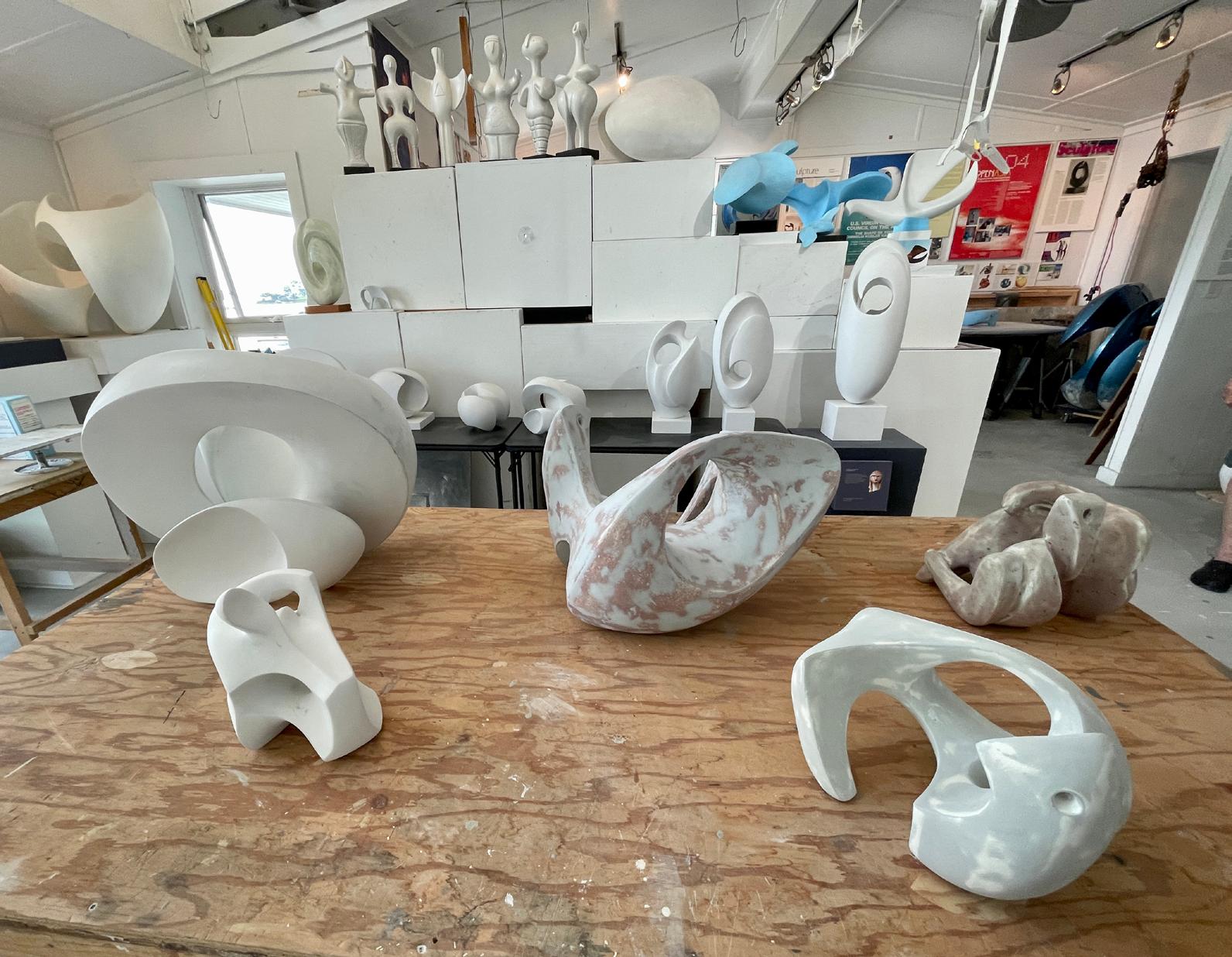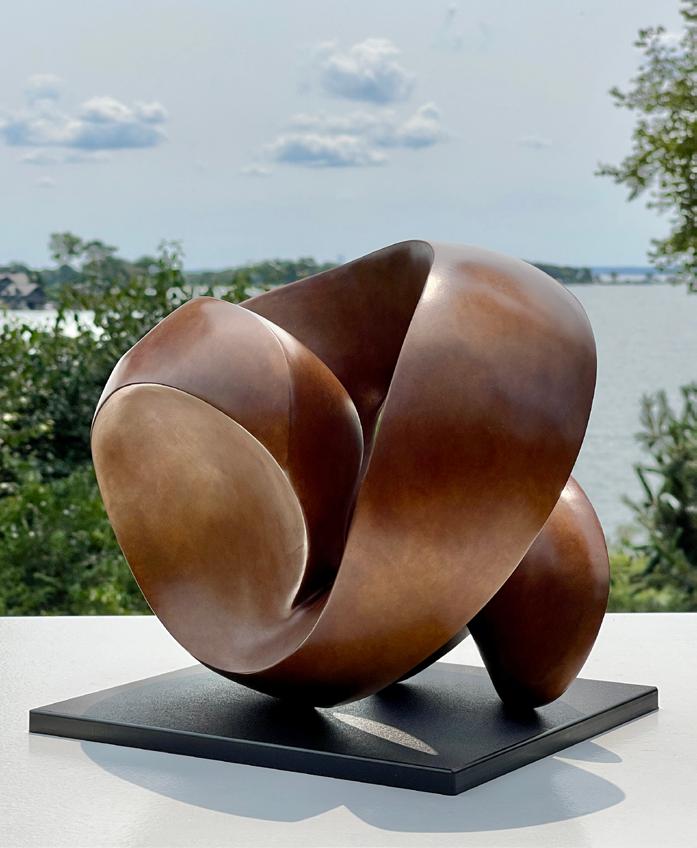Cornelia Kubler Kavanagh Deconstructing the Oval

Over the years, Cornelia Kubler Kavanagh has carved dozens of oval sculptures. The sculptures shown above are actually primed maquettes. Carved from polystyrene, they are covered with polymer, and refined with synthetic compound for limited-edition casting in metal. Recently, however, as shown in this catalog, she has finished some of them with metallic auto paint, to be offered for sale as one-of-a-kind works of art.

All rights reserved. This catalog may not be reproduced in whole or in any part, in any form or by any means, electronic or mechanical, without the written permission of Graham Shay 1857.
Design by Clanci Jo Conover
Front cover illustration:
Oval Edge Form XII, 2017
Painted polymer | 15 H. x 16 ½ W. x 9 D. inches
Back cover illustration:
Wing Form IV, 2021
Brazilian steatite on two-tiered granite base
28 H. x 36 ½ W. x 11 D. inches
The Artist’s Studio


Deconstructing the Oval Artist Statement
For me the oval has always been the most pleasing form from which to embark on a sculptural exploration. As opposed to a circle, an oval’s elongated shape allows for greater flexibility in removing mass while staying true to the lines of the exterior so the negative space remains complimentary to the whole. I also like the way the oval’s curves bend light both inside and out of the form.
In this latest series of sculptures, called “Oval Edge Forms,” I have tried to create conditions where negative space becomes such an integral part of the form that the oval — in its essential elliptical configuration — is sensed by what is missing. Each of the sculptures in this exhibition has been carved after first starting with a solid three-dimensional oval form. Some were “egg-like,” some almost as thick as they were wide, and others elongated and tapered. My intention was to convey the harmony of the original elliptical shape while offering added layers of visual interest through what has been removed. I feel the oval is most effective if all carving is resolved with smooth finishes. In this way the interplay of light on both interior and exterior surfaces creates shadows that echo and enhance the oval’s fundamental curves.
Cornelia Kubler Kavanagh

Oval Edge Form III, 2017

Painted polymer
23 H. x 13 ½ W. x 10 D. inches
Oval Edge Form VI, 2017

Painted polymer
19 H. x 26 W. x 23 D. inches
Signed | Unique
Oval Edge Form VII, 2017

Painted polymer
21 H. x 13 W. x 6 ½ D. inches Signed
Oval Edge Form IX, 2017

Painted polymer
24 H. x 15 W. x 9 D. inches
Oval Edge Form XXI, 2021

Bronze
16 H. x 17 W. x 15 ½ D. inches
Signed | Edition of 5
Oval Edge Form X, 2017

Painted polymer
12 ½ H. x 19 W. x 14 D. inches
Signed | Unique
Oval Edge Form XII, 2017

Painted polymer
15 H. x 16 ½ W. x 9 D. inches
Signed | Unique
Oval Edge Form XXII, 2023
Bronze 11 H. x 11 W. x 9 D. inches
Signed | Edition of 5

Oval Edge Form V, 2017

Painted polymer
12 ½ H. x 13 W. x 11 D. inches
Signed | Unique

Exhibition Checklist
Oval Edge Form I, 2017






Painted polymer
17 H. x 23 W. x 22 D. in.
Signed | Unique
Oval Edge Form V, 2017
Painted polymer
12 ½ H. x 13 W. x 11 D. in.
Signed | Unique
Oval Edge Form VII, 2017
Painted polymer
21 H. x 13 W. x 6 ½ D. in.
Signed | Unique
Oval Edge Form III, 2017
Painted polymer
23 H. x 13 ½ W. x 10 D. in.
Signed | Unique
Oval Edge Form VI, 2017
Painted polymer
19 H. x 26 W. x 23 D. in.
Signed | Unique
Oval Edge Form IX, 2017
Painted polymer
24 H. x 15 W. x 9 D. in.
Signed | Unique
Oval Edge Form X, 2017
Painted polymer
12 ½ H. x 19 W. x 14 D. in.
Signed | Unique
Oval Edge Form XXI, 2021
Bronze
16 H. x 17 W. x 15 ½ D. in.
Signed | Edition of 5
Oval Edge Form XII, 2017




Painted polymer
15 H. x 16 ½ W. x 9 D. in.
Signed | Unique
Oval Edge Form XXII, 2023
Bronze
11 H. x 11 W. x 9 D. in.
Signed | Edition of 5

